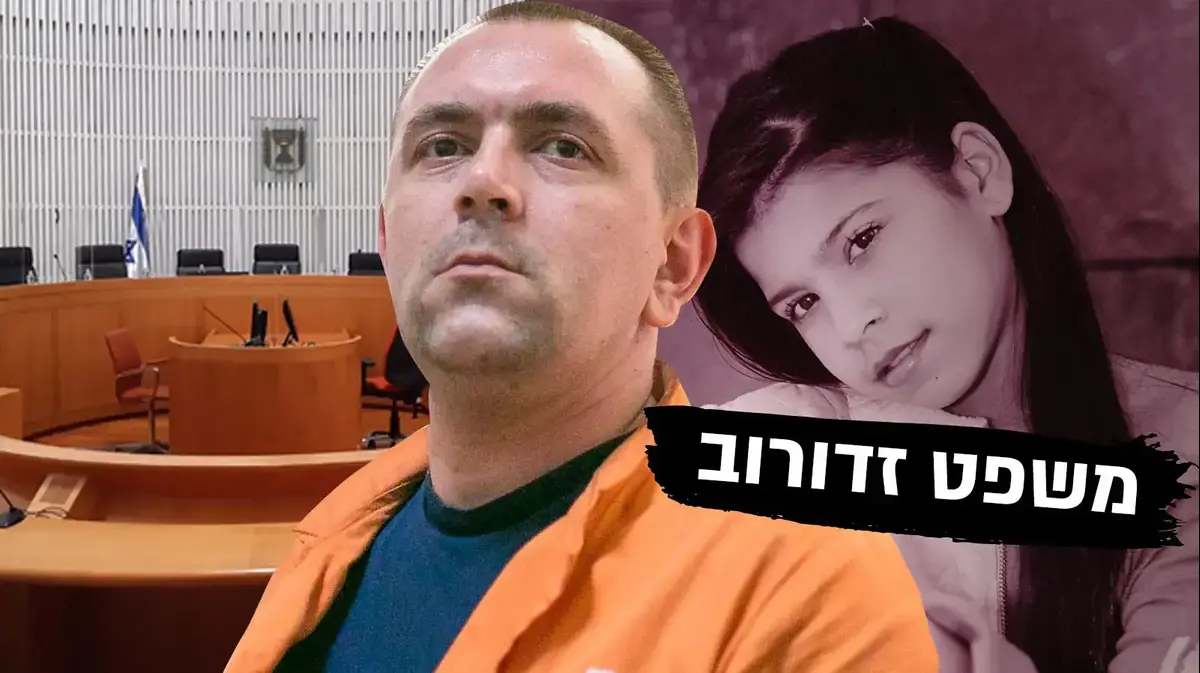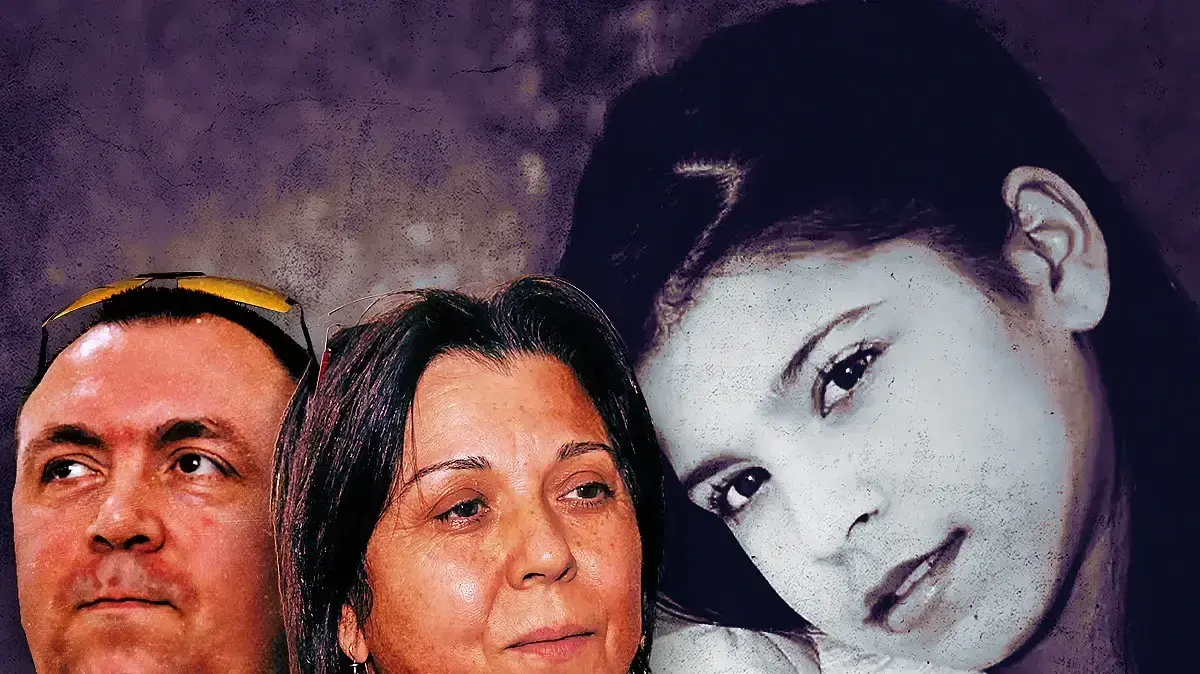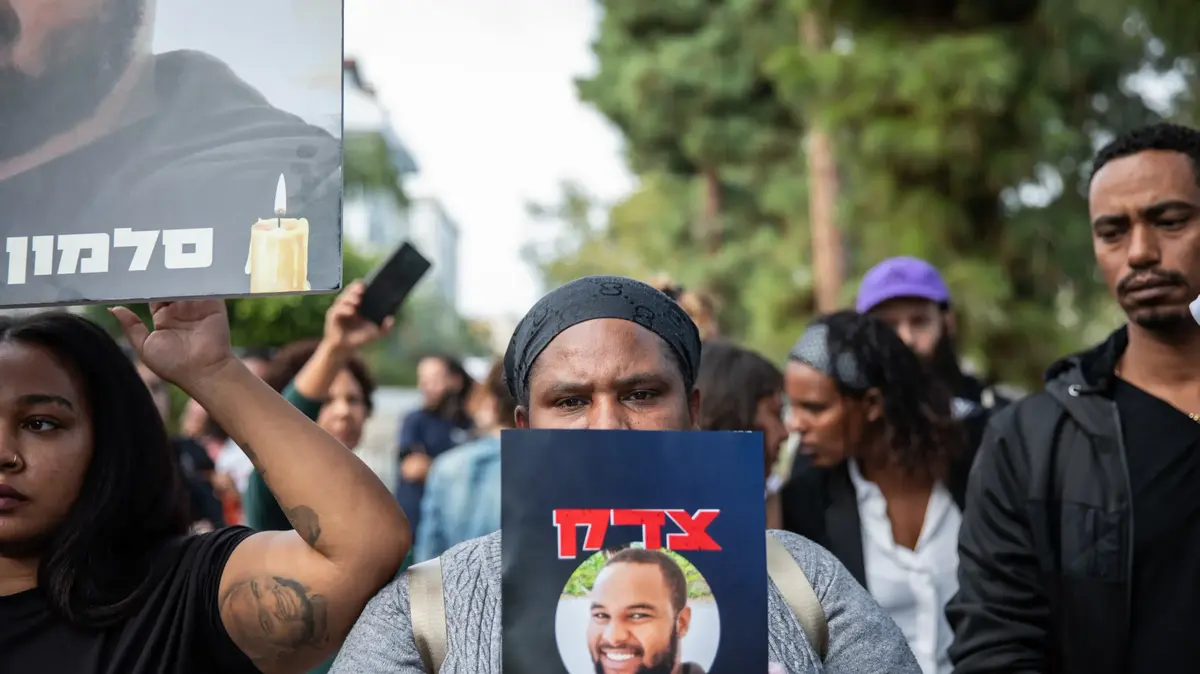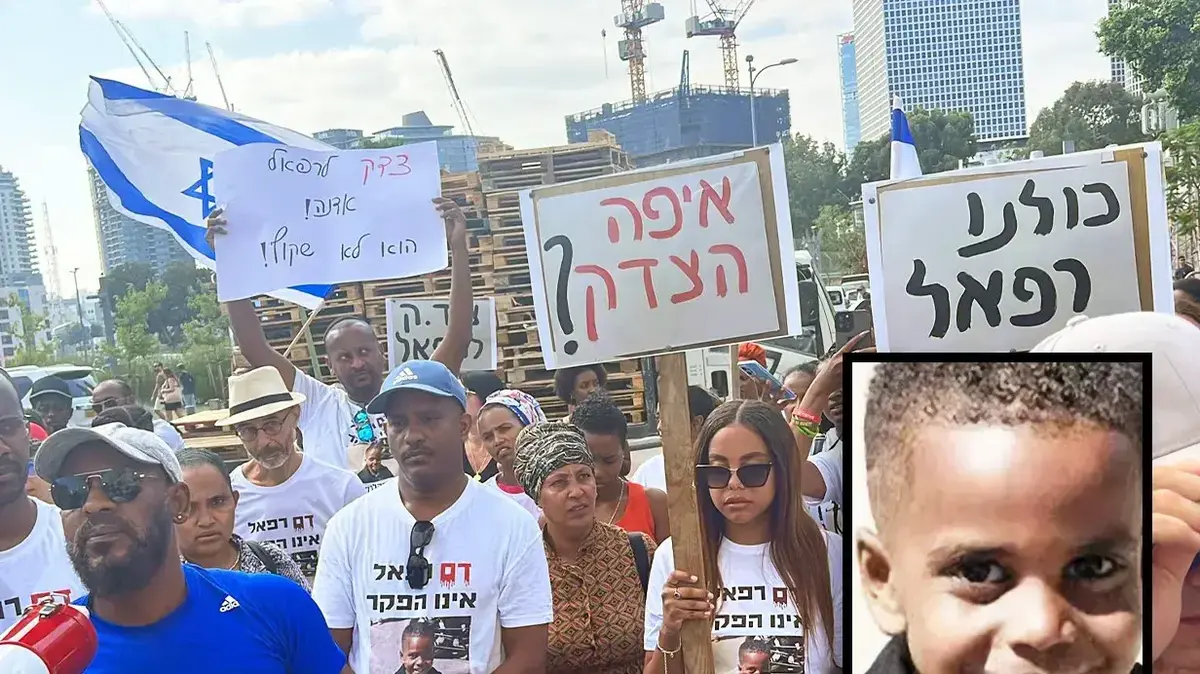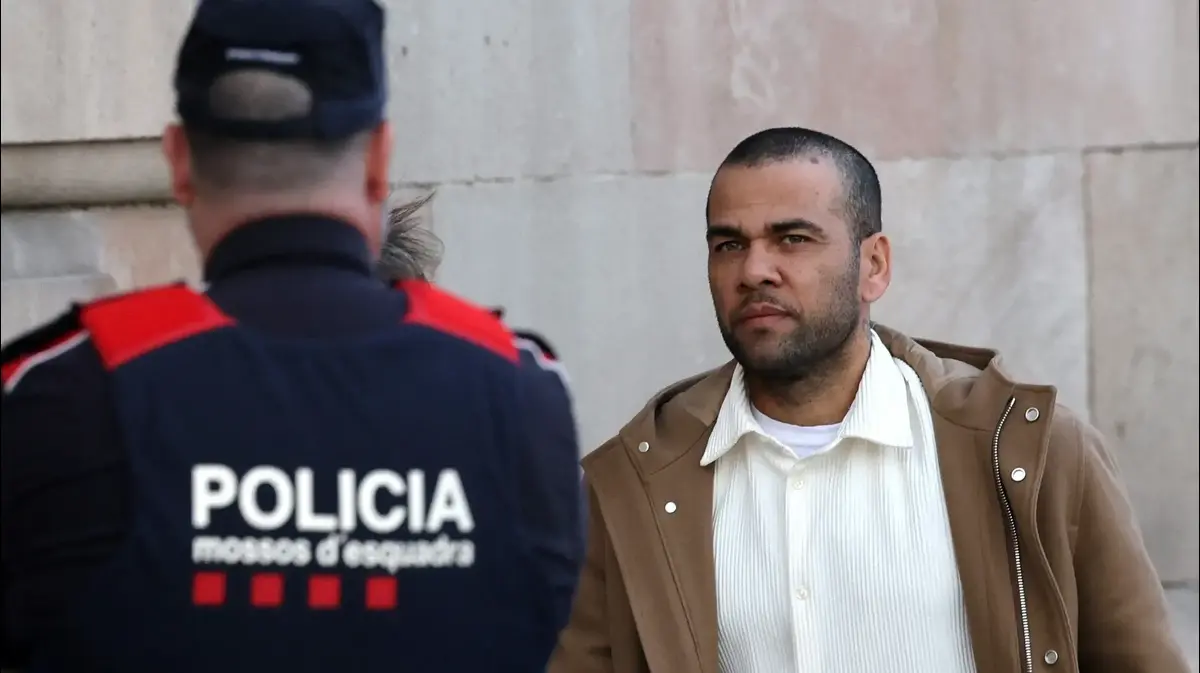What happens when a judge answers in place of the defendant: the strange story about Zadorov's retrial
Even before the evidence that led to the retrial was presented, the judges spoke out strongly against the thesis of the lawsuit accepted by 7 judges in the past.
The prosecution repeatedly remarks to the judges that they put words in Zadorov's mouth.
A retrial may be a certificate of honor to the justice system as long as it has not been decided in advance
Welcome read
10/03/2022
Thursday, 10 March 2022, 16:06 Updated: 18:25
Share on Facebook
Share on WhatsApp
Share on Twitter
Share on Email
Share on general
Comments
Comments
In the video: The fifth day of Roman Zadorov's testimony (Photo: Eli Ashkenazi)
The cold wind that penetrated through the huge open window froze yesterday (Wednesday) those sitting in the courtroom of the head of the court, Judge Asher Kola, in the Nazareth District Court.
This, after Judge Cola acceded to the request of those feared of being infected in Corona and ordered the opening of the formidable window, so that anyone who wanted to survive the hearing had to wrap himself well in warm clothes.
The play in which those sitting in the hall try, while struggling with the cold that penetrates the window key, to concentrate on the discussion, was certainly surreal - but much less surreal than other things that took place in the discussion itself.
Even so, Roman Zadorov's retrial event is an unusual, difficult event (no matter which side you are on) and complicated.
Therefore, the natural expectation is that such a trial will be conducted effectively though, but in giving more attention to the parties, in such a way that neither party, ever, will ever be able to claim to the world that he was not given his day within the last legal opportunity.
Even so this case broke an international record in conspiracy theories;
Even so, this case satisfied the hungry imagination of creators claiming to be documentaries, but in practice their inspiration drew more from the world of fiction.
One artist has convicted the murder of Rada's classmates, other creators have convicted a murdered man named Ola Kravchenko (AK). Another person walking around the courtroom says the killer is some kind of homeless person.
I would like to think that the three members of the panel of judges entrusted with this sacred task, to decide for the last time the fate of this case, will do so when neither side will ever claim that they did not let him have his voice heard, his experts and his evidence presented.
I admit that I have only spent two days, though intense, so far physically in this sentence - but unfortunately the feelings I came out with are very far from that expectation.
A nutshell reminder: On the one hand, there is Roman Zadorov, who has been claiming for years that he confessed to the police informant, to police investigators, and during a detailed reconstruction in December 2006 - that he murdered the girl Tair Rada in the Nofi Golan school - was a false confession. In fact innocent.
On the other hand, a prosecution that is convinced today more than ever that this man, in a moment of outburst of rage, was the one who slashed Rada's throat with a knife.
More on Walla!
Zdorov knew that Tair Rada's hair had been carelessly collected;
Prosecution: "Prove you are the killer"
To the full article
If the case is so far-fetched, how come seven judges did not notice it?
Zdorov (Photo: Eli Ashkenazi)
More on Walla!
Conflict in the Zadorov trial: the judges intervened, the plaintiff was forced to interrupt the investigation
Roman Zadorov first admitted that he worked at a construction site a few days after the murder of Tair Rada
Come get stronger, sculpt and change your life in 10 sessions
Zadorov, it will be recalled, was convicted in the first instance court, appealed to the Supreme Court, and this, which, although it did not accept the main points of the appeal, cautiously returned the case to the district court for review of opinions that were not properly examined.
Zdorov was convicted again, and again appealed to the Supreme Court.
By a two-to-one majority, the Supreme Court dismissed Zadorov's appeal.
The next incarnation was a request for a retrial following a new opinion on how the blood flowed, and following an affair known as AK (Ola Kravchenko). Judge Hanan Meltzer granted the request, while attaching less importance to the AK case, but attaching great importance to the opinion As for the bloodshed from which the possibility that another person was at the scene near the time of the murder (whose trace with blood was at the scene) was strengthened, unlike the previous thesis and opinion of the prosecution that it was a trace of one of the rescuers who arrived later, after finding the body.
In practice, what is happening in court right now drops a jaw and clarifies once again for the millionth time how doing justice in Israel (and in general) is the farthest thing from exact science.
True, when a retrial begins it starts from scratch, and it's good that the three judges treat the case that way.
However, Supreme Court Justice Hanan Meltzer sent the case to a retrial due to new evidence (otherwise by law he could not have returned the case to a retrial).
Kravchenko's testimony was held at the retrial behind closed doors.
We have not yet reached the case of bloodshed at trial.
That is, the vast majority of the judges' comments in the trial (and many), are on issues that were at the doorstep of eight judges - four district judges (one judge was replaced by the supplementary trial), and four Supreme Court justices (one judge was replaced on the second appeal).
Of these eight judges, only one judge, Yoram Danziger, decided to acquit Zadorov due to the old-fashioned issues.
He, too, Judge Danziger, said he was a step away from Zadorov's conviction, but the unidentified shoe prints did not give him rest.
It is certainly legitimate for judges now hearing the case to see it differently from previous judges who have discussed it, but what is the chance that these judges' voices (two of the three sound good; of the third less so) will already at this stage of the trial be so extreme, so resolute, so blatant, against The lawsuit, the same thesis that was approved by seven judges, and we will mention again - the main reason why we convened to hear a retrial, has not yet been discussed in court.
This statement does not come to blame God forbid judges, but does raise questions about the randomness of criminal law in Israel.
If the case is as absurd as the judges who Cola and Danny French give the impression in the courtroom in their comments, how did not seven judges notice it.
If it is not unfounded, how is it that Justices Cola and French allow themselves to make such extreme remarks already at this stage against the prosecution thesis that they told the plaintiffs in the case this week that their situation in the case is difficult?
Is it related to the unprecedented aggressive campaign in the public, and especially on social media,
Who has accompanied this case for years?
This question is sharpened when sitting in the hall.
The strange story of this sentence begins in September last year.
Following Judge Meltzer's dramatic decision, Morty's days were nerve-wracking in the State Attorney's Office over whether the new State Attorney, Amit Eisman, in his first test, would decide to go to retrial against Zadorov, or as in some cases in Israel's legal history, decide to withdraw the indictment.
Iceman decided to file the indictment.
Convicted by the documentaries.
Ola Kravchenko (Photo: Flash 90, David Cohen)
And here comes the mega-strange event that took place already in the first hearing in the Nazareth District Court, after Eisman's decision to go on trial.
Surprisingly, the panel of judges proposed to the prosecution staff, even before even one witness was heard in the case, to withdraw (according to section 94B of the Criminal Procedure Law) the indictment.
how?
Why?
based on what?
Opinions are divided here.
According to the defense attorney, Adv. Yarom Halevi, who made his remarks loudly at the beginning of the hearing yesterday, after I published this strange proposal in News 13, the judges' proposal came up after his complaint that the prosecution then, at the time, wanted to complete a forensic investigation. The motion to dismiss the indictment was procedural in the sense that after the investigation was completed the prosecution would re-file the indictment (a kind of hanging).
Without elaborating on legal details, Halevy's thesis does not align with the language of the law (the section on hanging an indictment is different and also does not fit in any way with the event before us).
One way or another, even if Halevy's thesis is correct, why a prosecutor's office a minute after deciding, after nerve-wracking days, to go to a retrial against Zadorov and not withdraw the indictment, will now want to overturn it in a way that will later require the Attorney General's approval to re-file. The law).
What's the point of this?
If this is really what the judges intended, and most of the people sitting in the courtroom do not think so, what is the point of such a request?
What path does she mark for the continuation of this sentence?
Does she not give the feeling that the decision in the case has already been written?
Isn't this the kind of proposal that justifies a request for disqualification?
These feelings only intensified later in the trial, and this week they reached a peak.
I have covered many criminal trials in my life, but have not come across a play like the one I saw this week.
I'm actually one of those who prefers the temperament of her voice and French - judges who are active in the debate, ask questions, demonstrate proficiency, and not the style of judges who are silent like fish until they decide.
The thing is, our judges, last Tuesday, did not excel at presenting questions to the witness, but in providing answers in his place.
It was an absurd spectacle.
The judge erupted and responded in place of the witness.
Prosecution evidence in the Nazareth District Court (Photo: Eli Ashkenazi)
For example, prosecutor Meital Chen Rosenfeld questioned Zadorov about his testimony regarding the pair of pants he threw away on the day of the murder.
Among other things, she tried to ask him why, precisely when he is shown a certain pair of pants in the interrogation (the one who said he threw, but did not really throw), he examines him especially differently from the other pairs that were presented to him.
At this point Judge Cola erupts and simply replies instead of the witness that Zadorov's examining look at the computer is related to a distortion created in the photograph due to what he called in the hearing a "ninja effect".
The plaintiff was appalled.
I have seen in years of coverage many cases where a judge slaps a lawyer because he puts words in the witness 'mouth, I have never seen a reverse case where a lawyer slaps a judge who puts words in the witness' mouth.
In this sentence it happens a lot.
In this case, the plaintiff was so outraged that she asked the panel to take a break, and when she returned from it she told the judge, in other words, that she would not continue her line of inquiry due to the contamination of the witness' testimony by the judge.
Another blatant case was the same day when a segment was screened in which Zadorov says some statement (less important software at the moment) in front of the dubber.
The plaintiff projects the passage, with the aim of later receiving Zadorov's response to his statement.
During the screening the judge asks her to stop to hear a sentence previously filtered by the dubbed Arthur.
The prosecutor knew the passage well, and knew that the sentence Arthur was saying was the same sentence that Zadorov would say later, but she wanted to let Zadorov explain in court as he wished.
"Notice what he says here," the judge says aloud.
The plaintiff freaked out again.
"Now the witness will say that he is simply repeating the words of the dubber," she slapped the judge.
Well, after a loud argument between the judge and the prosecutor, Zadorov was asked to interpret his statement, and he replied as expected: "I repeated what Arthur said."
Fragile laughter erupted on the benches of the prosecution, and the head of the tribunal responded: "Now say that he said it because of me. Okay, okay, I'm not in a hurry," Yani said.
Halevy, to tell the truth, is treated much better in the hall, even though he treats it as if it were his home living room.
Throws loud remarks every few minutes, usually uninterrupted by the judges, releases into the courtroom contempt for the prosecution, and gives loud promos about his expected moves later in the trial.
Things are done both behind open doors, and behind closed doors, when Ola Kravchenko testified there (the same woman that Halevy declared on every occasional microphone because not only did she murder Tair Rada, but she was a serial killer).
Cola's comments on these outbursts are minor and smiling.
And all this as stated even before a single word was heard in this case regarding the opinion on the bloodshed, the opinion that brought us to the retrial.
Here, too, it seems pretty clear where the judges' train is going.
Halevy's main witness on the issue of bloodshed is the winning joker for him, the head of the Institute of Forensic Medicine, Chen Kugel.
The judges ahead of time have already wondered aloud in court how it is the prosecution, which Kugel regularly represents its position in court, could argue in the future that his testimony is unacceptable to them?
On the other hand, the judges asked the prosecution to waive the testimony of the experts on their behalf on exactly the same issue.
He attached less importance to the AK affair. Meltzer (Photo: Reuven Castro)
A few concluding remarks.
The three panel judges are rarely familiar with the criminal case before them.
I wish for every judge in Israel.
Despite the description given here of Halevy's disturbed behavior in the hearing, it must be noted that this is an excellent defense attorney who brought his client a rare achievement, and probably the huge achievement even before him.
No doubt his colleagues can envy him.
The prosecution team that appears in the case has arrived ready, investigating very professionally, but at the moment it does not seem to be helping him.
Make no mistake, acquitting a person in a retrial, due to a reasonable doubt arising from new evidence, is ostensibly a certificate of honor for the Israeli legal system.
We are not naive and it is clear that judges develop an opinion on the case while managing it, but we want to believe that the judges leave in their hearts an opening for every decision.
Perhaps this is also happening in Zadorov's retrial, but to the outside world it is not seen, and justice, we have learned, should also be seen.
news
News in Israel
Criminal news and law
Tags
Tair Rada
Roman Zdorov
The Nazareth District Court

